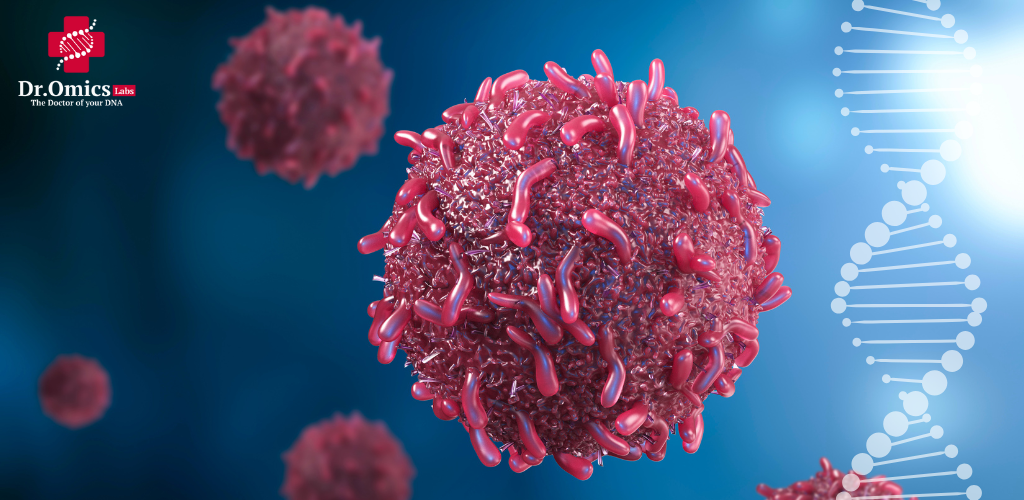Colorectal cancer (CRC) remains a significant global health challenge, necessitating continuous advancements in treatment strategies. Chemotherapy, a cornerstone of CRC management, often presents a trade-off between efficacy and toxicity. Inter-individual variability in response to chemotherapy agents highlights the need for personalized approaches. Onco PGx addresses this challenge by analyzing genetic variations that influence how patients metabolize chemotherapy drugs, allowing for more precise drug selection and dosing. This personalized approach reduces the likelihood of severe side effects, enabling patients to receive optimal treatment while minimizing the impact on their overall quality of life. Onco PGx, or pharmacogenomics in oncology, is emerging as a powerful tool to mitigate chemotherapy-induced side effects and optimize treatment outcomes in CRC patients. By leveraging genetic insights for chemotherapy, Onco PGx enables tailored cancer care for colorectal cancer, moving towards precision medicine for colorectal cancer.
The Role of Pharmacogenomics in Colorectal Cancer
Pharmacogenomics in colorectal cancer aims to understand how an individual’s genetic makeup influences their response to chemotherapy drugs. Genes encoding drug-metabolizing enzymes, transporters, and drug targets can exhibit variations that affect drug efficacy and toxicity. By identifying these variations through genetic testing for colorectal cancer treatment, clinicians can predict which patients are more likely to experience adverse events and adjust treatment strategies accordingly. This approach aligns with the goals of personalized colorectal cancer therapy, which seeks to maximize treatment benefits while minimizing harm.[1]
Key Genes in Colorectal Cancer Onco PGx
Several genes play a crucial role in the pharmacogenomics of CRC chemotherapy. Two of the most well-studied are DPYD and UGT1A1, which encode enzymes involved in the metabolism of 5-fluorouracil (5-FU) and irinotecan, respectively.
- DPYD: This gene encodes dihydropyrimidine dehydrogenase, the enzyme responsible for the degradation of 5-FU. Genetic variations in DPYD can lead to reduced enzyme activity, resulting in increased 5-FU exposure and a higher risk of severe toxicities such as mucositis.[1]
- UGT1A1: This gene encodes UDP-glucuronosyltransferase 1A1, the enzyme responsible for the glucuronidation of irinotecan’s active metabolite, SN-38. Genetic variations in UGT1A1, particularly the UGT1A128 allele, can reduce enzyme activity, leading to increased SN-38 exposure and a higher risk of neutropenia and diarrhea.[2]
Benefits of Onco PGx in Reducing Chemotherapy Side Effects
Reducing chemotherapy side effects with Onco PGx offers several potential advantages for CRC patients:
- Personalized Dosing: By identifying individuals with DPYD or UGT1A1 variations, clinicians can adjust the starting dose of 5-FU or irinotecan to reduce the risk of severe toxicities. This tailored cancer care for colorectal cancer approach ensures that patients receive a dose that is both effective and tolerable.[3]
- Alternative Treatment Strategies: In some cases, Onco PGx testing may reveal that a patient is at very high risk of toxicity with a particular chemotherapy regimen. In these situations, clinicians can consider alternative treatment options, such as different chemotherapy agents or targeted therapies, to achieve similar efficacy with a lower risk of side effects.
- Improved Quality of Life: By minimizing chemotherapy-induced side effects, Onco PGx can significantly improve the quality of life for CRC patients. Reduced rates of mucositis, neutropenia and diarrhea can lead to fewer hospitalizations, less discomfort, and a greater ability to maintain daily activities.
- Cost-Effectiveness: Although Onco PGx testing involves an upfront cost, it can potentially reduce overall healthcare costs by preventing severe adverse events that require hospitalization and supportive care.
Implementing Onco PGx in Clinical Practice
The successful implementation of Onco PGx and colorectal cancer requires a multidisciplinary approach involving oncologists, pharmacists, genetic counselors, and laboratory personnel. Clinicians need to be educated about the principles of pharmacogenomics and the interpretation of test results. Laboratories must ensure the accuracy and reliability of PGx testing. Patients need to be informed about the potential benefits and limitations of PGx testing and actively participate in the decision-making process. Integrating PGx results directly into the electronic medical record can facilitate clinical decision support and ensure that healthcare providers have easy access to relevant genetic information.
Advanced Approaches and Future Directions
While DPYD and UGT1A1 are currently the most widely used PGx markers in CRC, ongoing research is exploring the role of other genes that may influence chemotherapy response. Additionally, functional personalized oncology (FPO) approaches, which involve testing the effects of drugs on patient-derived tumor models, are emerging as a promising strategy to further refine treatment decisions. By combining genomic and functional data, clinicians can gain a more comprehensive understanding of an individual’s tumor biology and tailor treatment accordingly.
Conclusion
Onco PGx benefits for colorectal cancer are increasingly evident, offering a path towards safer and more effective chemotherapy regimens. By integrating genetic testing for colorectal cancer treatment into clinical practice, healthcare providers can minimize chemotherapy side effects, improve quality of life, and optimize colorectal cancer treatment. As the field of pharmacogenomics continues to advance, its role in precision medicine for colorectal cancer will become even more prominent, transforming the landscape of CRC management and improving outcomes for patients worldwide.
References




